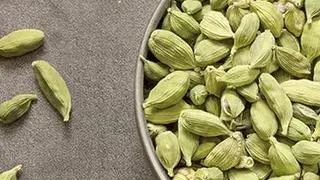The much maligned waste from power plants, fly ash, may after all have some beneficial effects.
Going by research findings of the Hyderabad-based National Institute of Nutrition (NIN), wheat grown on fly ash-treated soils may be safe for consumption. Thermal power plants throw up huge quantities of fly ash. But they find hardly any takers for the ash, as the cost of transporting it from the remotely situated plants is expensive. Efforts to dispose it of mean expenditure to the plant. If the plants don't dispose of the ash, then mounds of it become an environmental problem.
A the team of NIN scientists studied the use of fly ash as a mix in soils where wheat is grown. Studies have shown that a mix of 200 tonnes for an hectare will not have any adverse effects on the nutritional composition of the wheat.
The NIN study was focussed on fly ash application on nutritional quality of agriculture produce and associated safety issues for possible human consumption. Accordingly, the scientists carried out evaluation on rats fed with wheat grown in fly ash-applied soils.
The tested locations were Bakreswar, near Dhanbad in Jharkhand, and Rihand Nagar, near Bhopal in Madhya Pradesh. Results on analysis of wheat samples grown at both sites showed that the nutrient composition of wheat grown on fly ash treated soils was not different from that grown without fly ash. However, with respect to trace minerals and heavy metals there was a difference, which NIN scientists say may not make a significant impact, as they were all within permissible limits. Interestingly, the NIN study is one of the first in respect of biological evaluation of agriculture products grown on fly as applied soils. According to information available, 100 million tonnes of fly ash is produced by 82 thermal plants. The national fly ash mission has initiated 15 technology demonstration projects at 55 sites all over India to assess the effects of field application of fly ash.







Comments
Comments have to be in English, and in full sentences. They cannot be abusive or personal. Please abide by our community guidelines for posting your comments.
We have migrated to a new commenting platform. If you are already a registered user of TheHindu Businessline and logged in, you may continue to engage with our articles. If you do not have an account please register and login to post comments. Users can access their older comments by logging into their accounts on Vuukle.